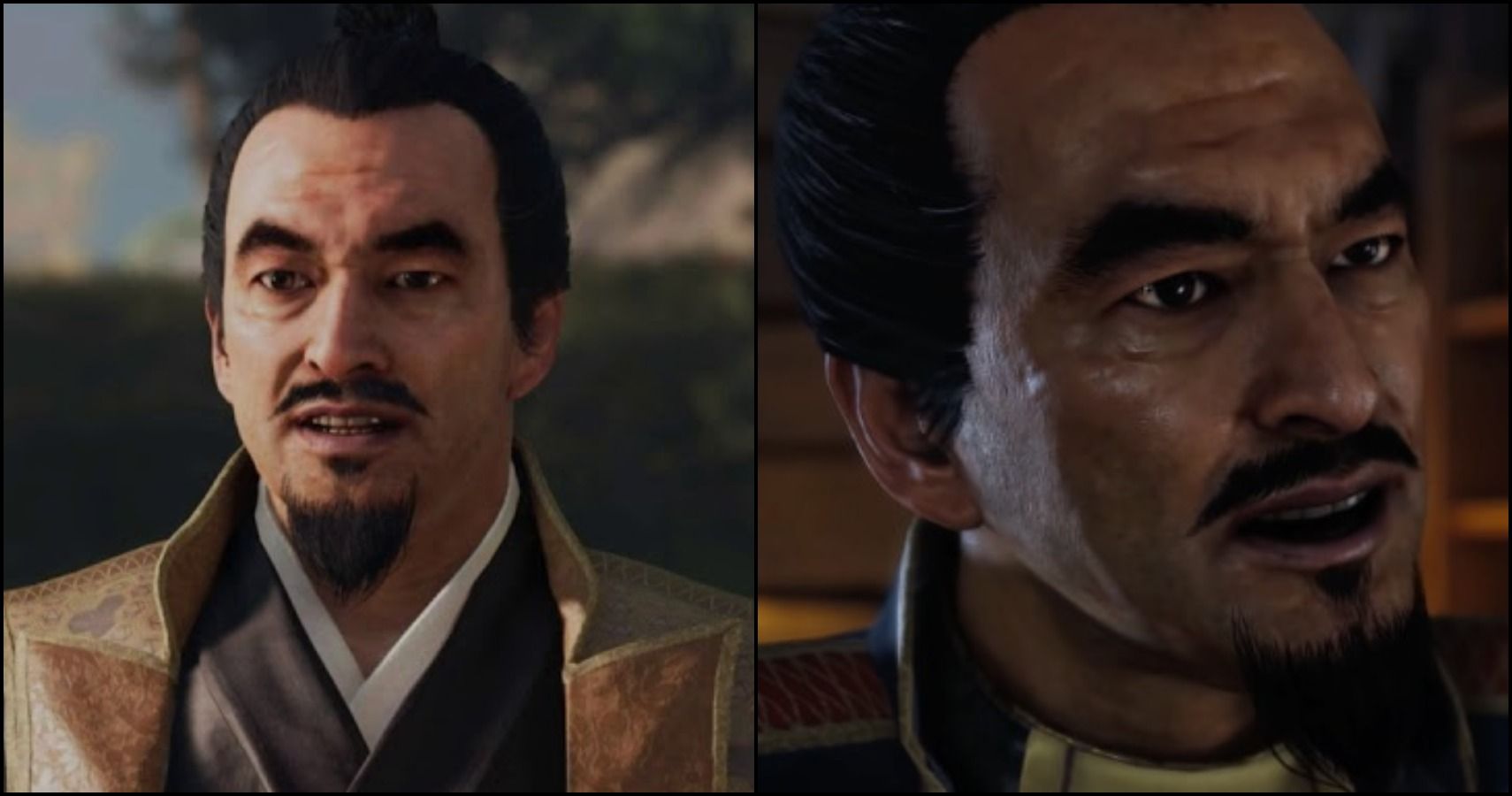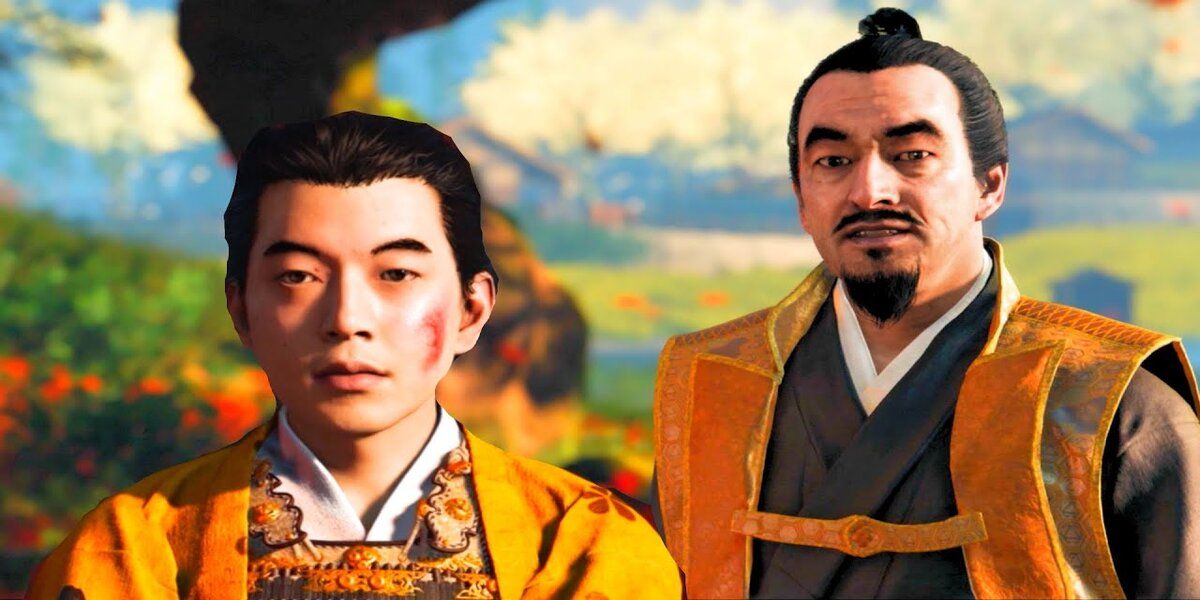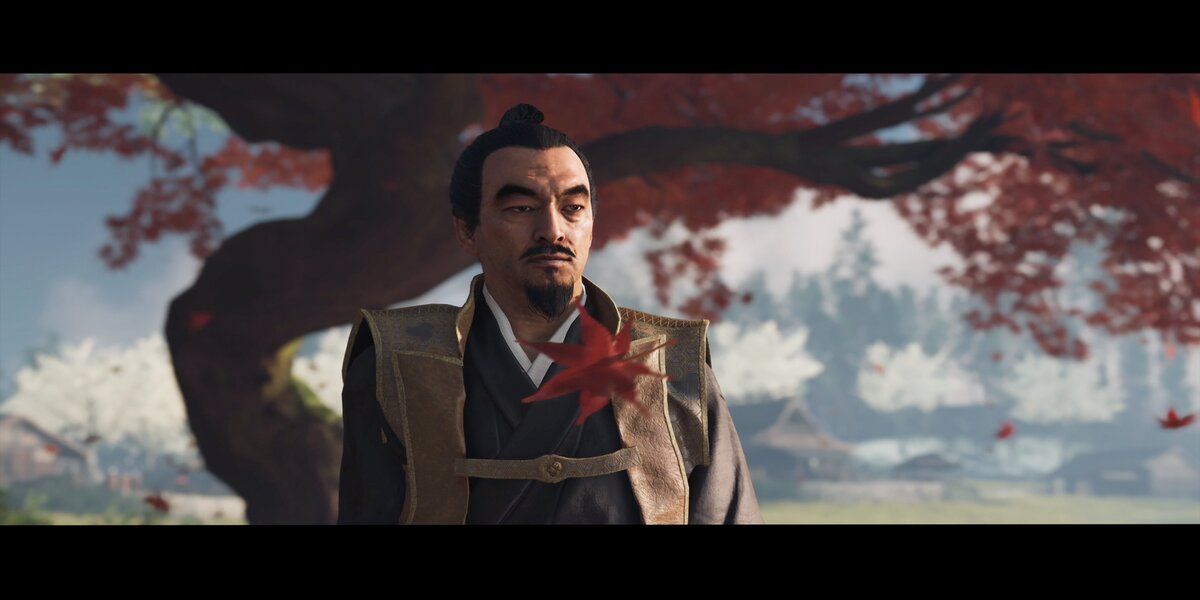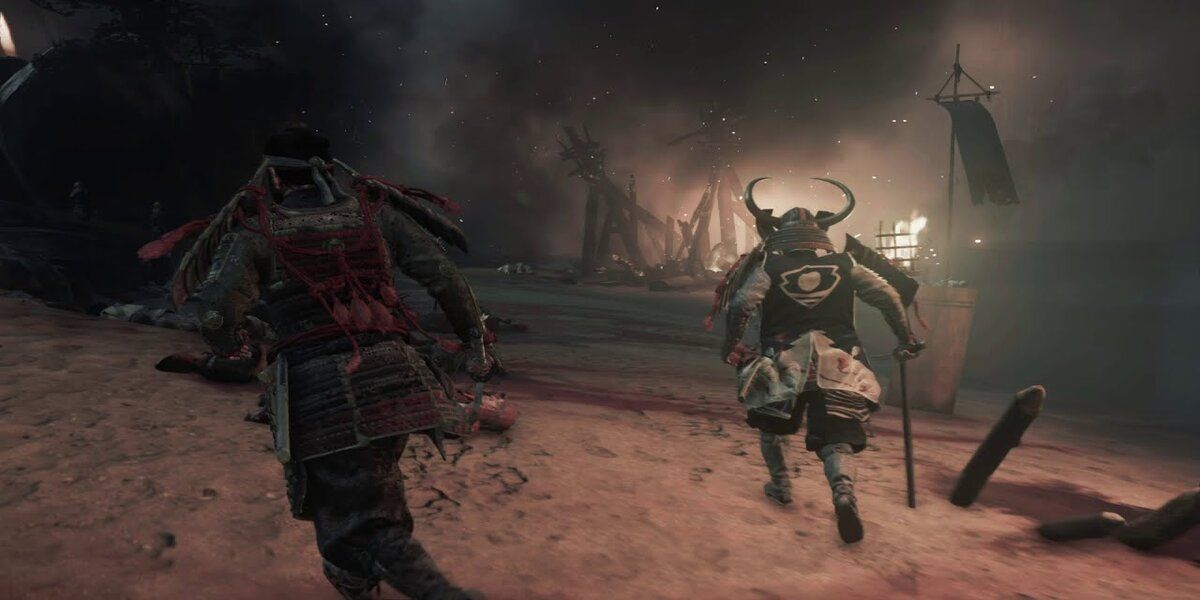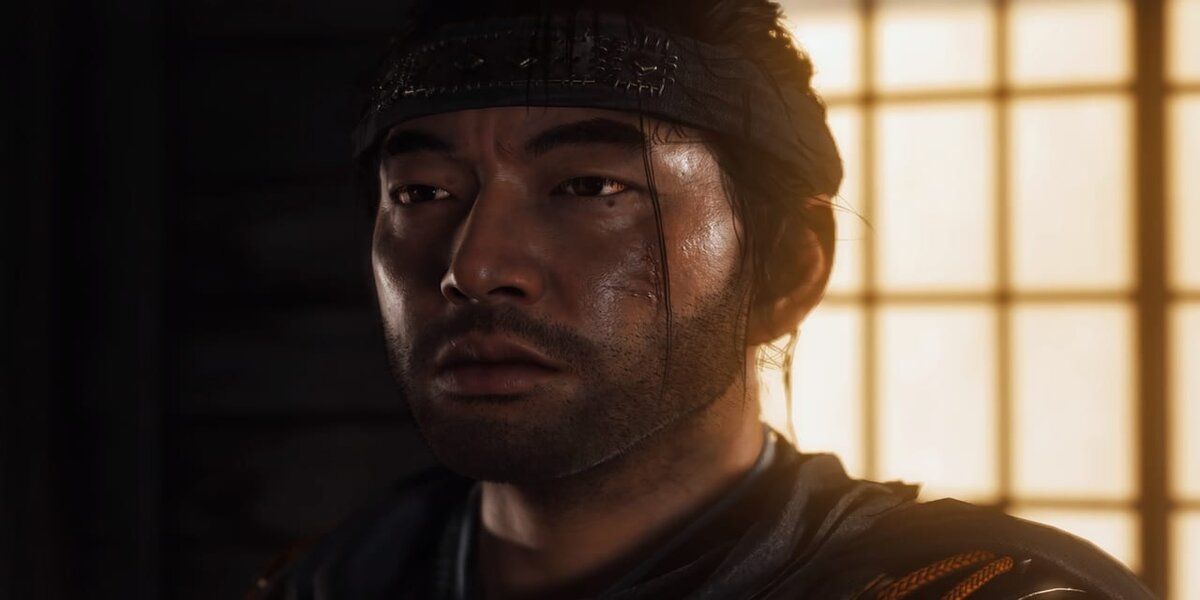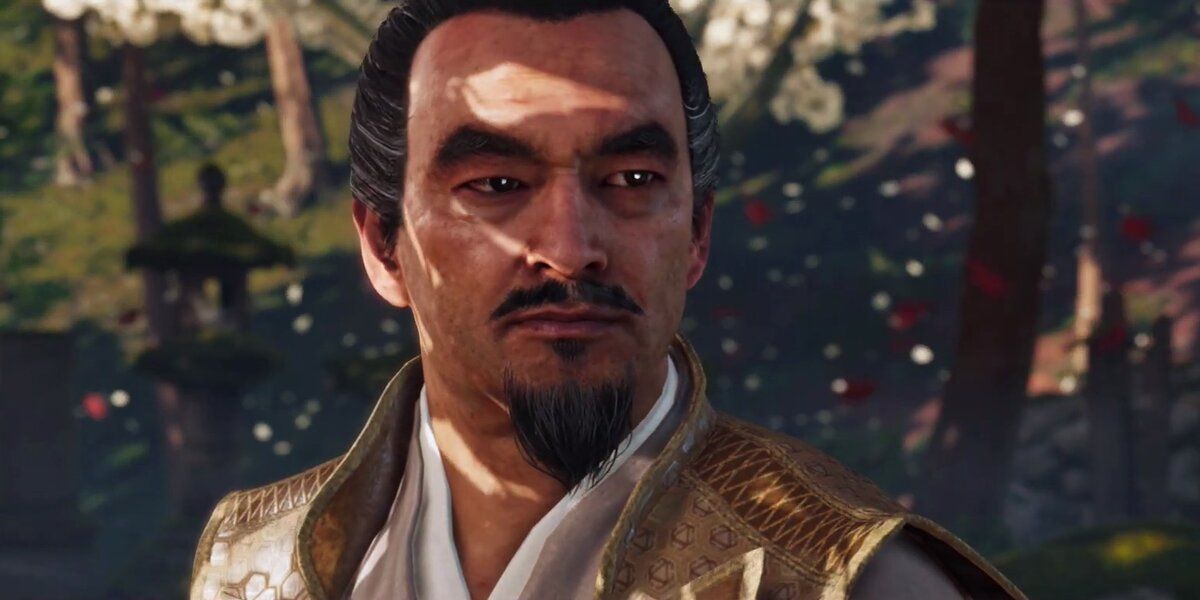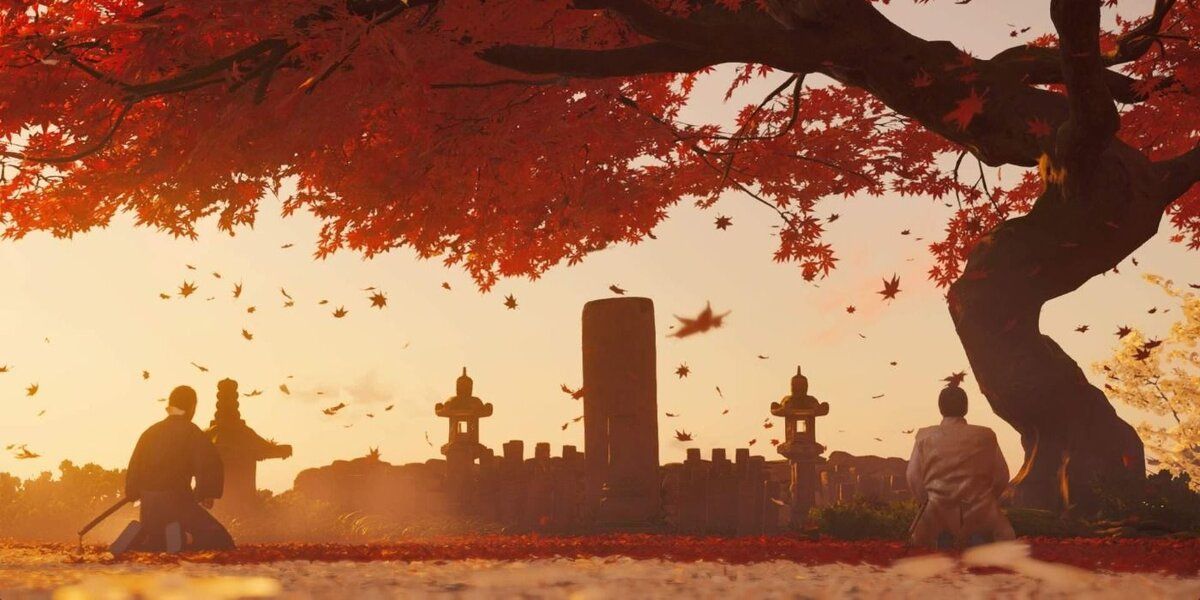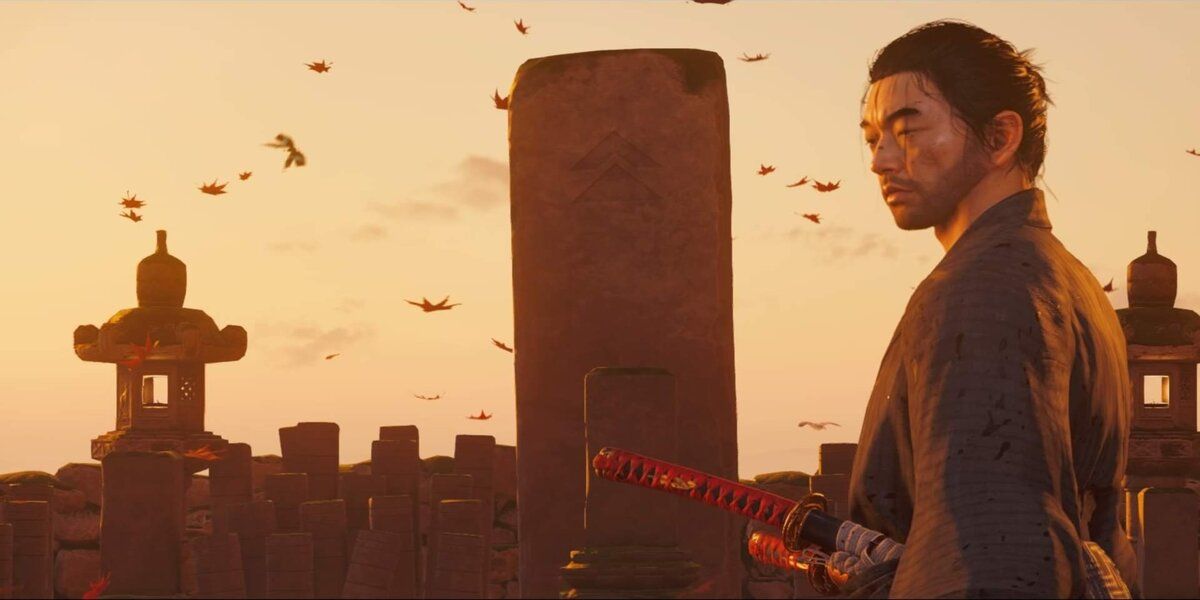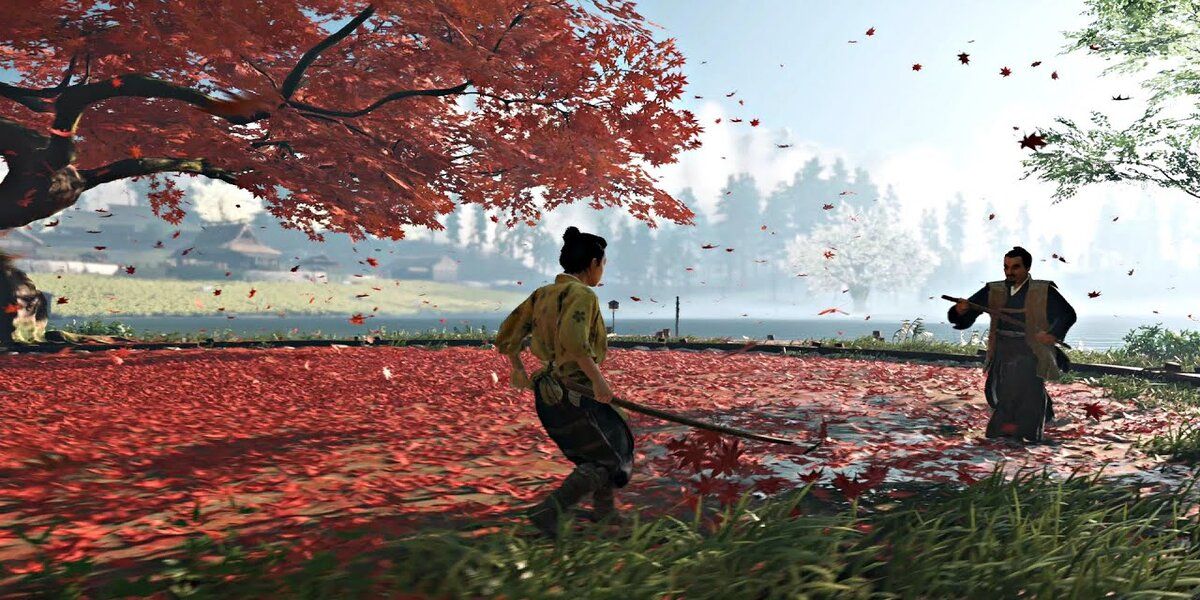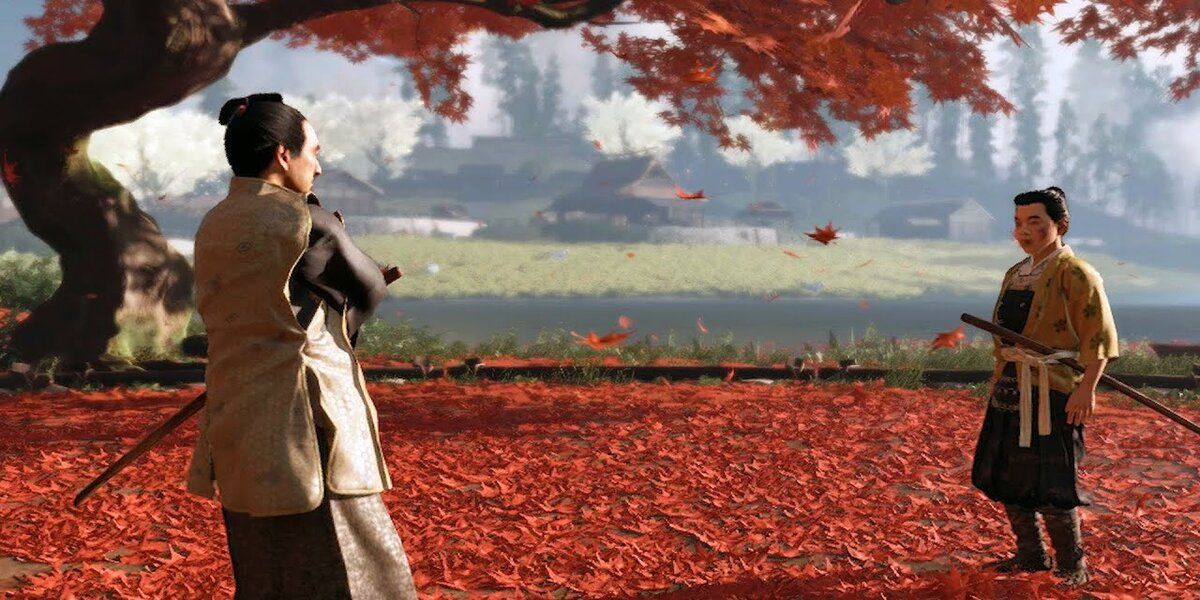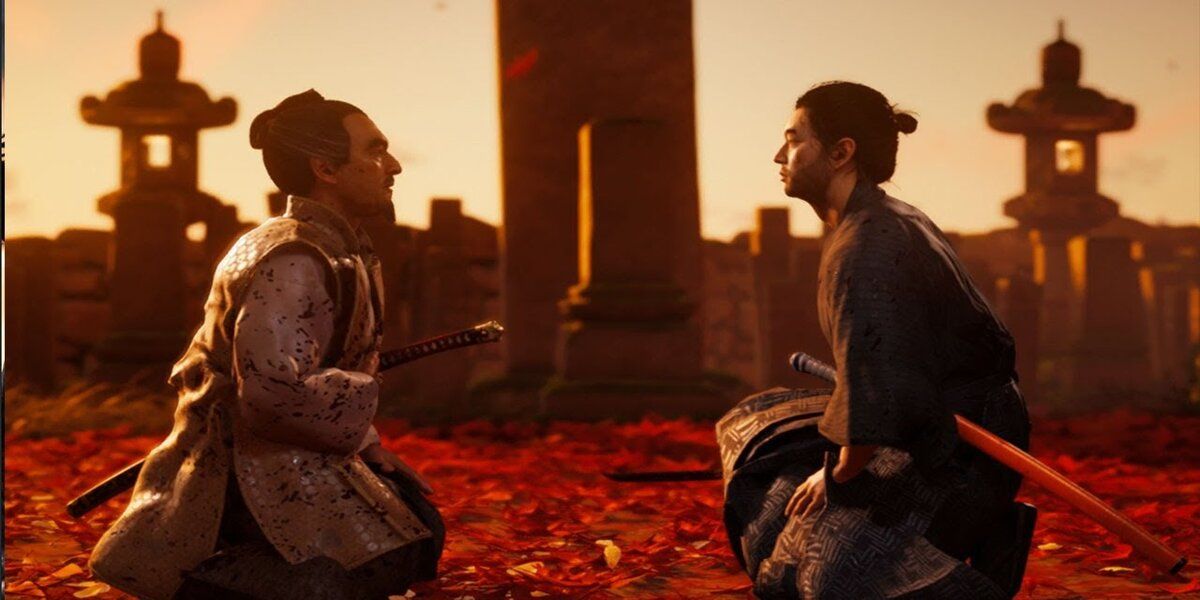Lord Shimura is the tritagonist in Ghost of Tsushima. He's the figure the main hero has to fight at the climax of the story, but he's not necessarily the main villain of the story. In fact, he's not the villain at all. He just has these codes and moral standings that contradict that of the main character, which ultimately become the cause of their divide.
Lord Shimura is not a perfect man. As just and honorable as he claims to be, he does a lot of things in the game that are outright questionable, sometimes evil, even.
10 Heroic: Raising Jin Sakai
One of the most admirable things Lord Shimura has done is taking in Jin Sakai under his wing. When Jin's parents died at a young age and he was left an orphan, Lord Shimura was the person who gave him a family again.
Lord Shimura even took the liberty of training the young Jin Sakai to be a samurai warrior. By then end, Jin had become one of the most formidable warriors in all of Tsushima, and he has Lord Shimura to thank for that.
9 Wrong: Allowing His Forces To Be Casualties For Honor
The assault to retake Shimura Castle from Mongolian invaders, which is led by Lord Shimura, highlighted just how willing he is to take things to the extreme in the name of honor. When Khotun Khan started employing dirty tactics to the demise of Lord Shimura's forces, Jin Sakai knew they had to change their strategy to avoid further losses. Since this isn't the way of the samurai, Lord Shimura immediately declined this proposition—despite being aware of how many lives it will end up saving. He was willing to let his forces be nothing more than just casualties of war if it meant upholding the Bushido code.
8 Heroic: Leading The Battle At Komoda Beach
When the Mongolian army arrived at Tsushima and landed at Komoda Beach, Lord Shimura was the fierce and fearless man at the forefront of the defense. Even though the tides weren't in their favor, he let us bravery blossom and charged head-on for the sake of Tsushima, with Jin Sakai right beside him.
It was clear from the get-go that the Mongolian army would win that battle. Khotun Khan was a man without honor, he'd do anything to attain victory, and it seems that's exactly the weakness of the samurai. This didn't make Lord Shimura falter at all.
7 Wrong: Imprisoning Jin
Jin Sakai disobeyed Lord Shimura's orders during the battle to reclaim Castle Shimura. When it was clear Khotun Khan wasn't going to play cleanly, Jin knew they'd lose that battle and have their forces killed. That's unless they employ a new strategy. That is exactly what he did. Jin Sakai did something the samurai consider dishonorable, and even though what he did made them win the battle and saved the lives of their men, Lord Shimura was still willing to send his nephew to jail. What's worse is he even considered letting Yuna become a scapegoat.
6 Heroic: Not Surrendering To Khotun Khan
When the warriors of Tsushima lost at Komoda Beach, Lord Shimura—the head of the land and leader of the defense—ended up getting captured. While he was sitting at Khotun Khan's cell, he had every opportunity to surrender and end his hardships. He did none of that. Instead, he persevered and trusted in his nephew to rescue him.
Lord Shimura's unwavering honor may sometimes lead him to reach irrational conclusions, but it's this very honor that also makes him brave and sturdy. Not even the mighty Khotun Khan was able to make Lord Shimura bow down and give up his territory.
5 Wrong: Unwilling To Let Go Of The Bushido Code
Lord Shimura had so many opportunities all throughout the game to just let go of his stubborn, sometimes irrational sense of honor. He never did. When Jin did something he considered dishonorable, even though it helped them win a battle and save lives, Lord Shimura imprisoned him for the sake of honor. Just before Jin was about to be captured, Lord Shimura proposed to blame it all on Yuna, because she was a thief and a dishonorable woman. So many horrible decisions were made but just because they adhered to the Bushido code, Lord Shimura was willing to go through with them all.
4 Heroic: Helping Jin At Port Izumi
During the final moments of the game, Jin Sakai and his allies were able to pin Khotun Khan down at Port Izumi. As skilled as this band of warriors are, they would never have won that battle if Lord Shimura didn't arrive at the last minute to help them secure their victory. At this point, Jin Sakai and Lord Shimura's relationship were already faltering. When Jin requested for his uncle's help, Lord Shimura came through and answered his call. Though it could be argued that he only did so to save Tsushima, it was still a heroic deed nonetheless.
3 Wrong: Allowed Jin To Be Stripped Of His Titles
After Jin Sakai liberated Tsushima from Mongol occupation by defeating and killing Khotun Khan, one would think that he'd be rightfully given amnesty for his crimes. After all, he did just save his homeland from invaders. The Shogun and the samurai don't seem to think so, however. As heroic as his deeds were, it seems they hold no weight compared to his crimes and dishonorable actions.
It was at this point Lord Shimura could have turned it all around and sided with his beloved nephew. Yet, because of his arrogant sense of honor, he once again let his nephew down. He allowed Jin to be stripped of his titles, he even took away the family home he grew up in.
2 Heroic: Being Openly Willing To Adopt Jin
Jin Sakai and Lord Shimura was already essentially father-and-son. They didn't share a family name, but they shared the bond. Lord Shimura wanted to take that further by adopting his beloved nephew and make him his heir. He was open about this decision and he was very proud of the man Jin Sakai had become. That was until Jin slowly started becoming the Ghost.
If it weren't for that, if only Lord Shimura went through with adopting Jin, it would have been an incredibly massive gesture and there'd be none more heroic to Jin. Unfortunately, things don't always go the right way. It was still a fairly great thing to consider in the first place, though.
1 Wrong: Asked Jin To Kill Him
Lord Shimura's final request to Jin Sakai was the last nail in the coffin in his road to being the anti-hero. Not only did he allow Jin to be stripped of his titles, but he was also ordered to execute him—and he went through with it. Lord Shimura, the honorable man that he was, was willing to murder his own nephew, the man he raised and trained, the man who basically saved Tsushima.
What's worse, when he lost this duel, he asked Jin, a man who looks up to him and loves him like a father, to murder him in cold blood. All of this simply for the sake of honor.

